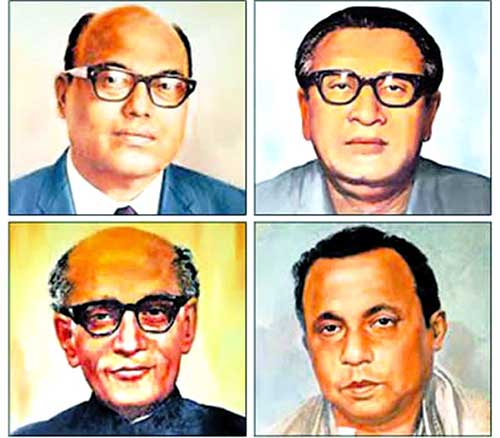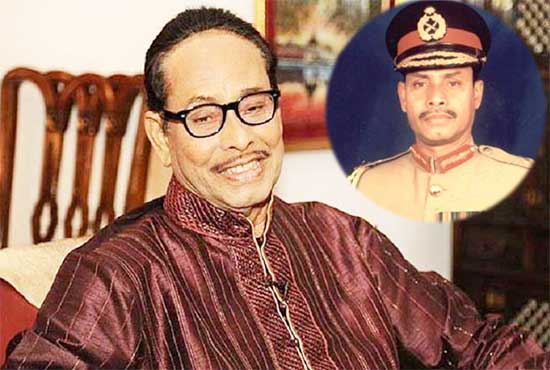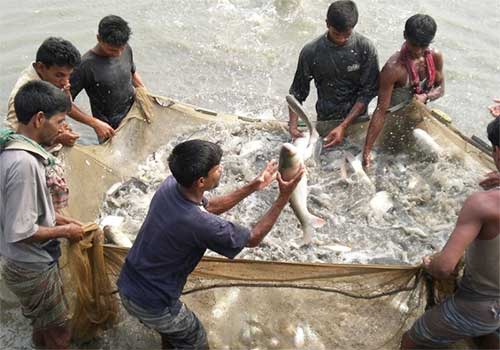
Jail Killing Day, observed annually on November 3, holds a significant place in the history of Bangladesh. The day commemorates the assassination of four national leaders—Syed Nazrul Islam, Tajuddin Ahmed, Captain (Rtd.) Mansur Ali and A H M Quamruzzaman—who played vital roles in the country's liberation and early government formation. Their tragic murder in Dhaka Central Jail in 1975, less than five years after independence, remains a painful reminder of the challenges Bangladesh faced during its formative years. This article commemorates their legacy, examines the events surrounding their assassination, and discusses the efforts for justice, ensuring these leaders are remembered for their contributions to the nation.

The Events of November 3, 1975
Following the assassination of Sheikh Mujibur Rahman, the founding leader of Bangladesh, the nation plunged into political turmoil. The killing triggered a countercoup led by Brigadier Khaled Musharraf, seeking to stabilize the situation. Amid the chaos, Sheikh Mujib's assassins planned to flee the country. However, before they could escape, they executed one last brutal act by targeting four of Bangladesh's founding leaders.
On November 3, 1975, inside Old Dhaka Central Jail, Syed Nazrul Islam, Tajuddin Ahmed, Captain (Rtd.) Mansur Ali and A H M Quamruzzaman were shot and stabbed by army personnel. Their murder was a devastating blow to a newly independent country, leaving an indelible mark on its history and its people.
The Fallen Leaders
Each of the four leaders assassinated on Jail Killing Day was instrumental in Bangladesh's liberation movement and post-independence government:
• Syed Nazrul Islam—The acting president of the Mujibnagar Government, Syed Nazrul Islam, was highly respected as a steadfast leader and was vice president of the Awami League (AL).
• Tajuddin Ahmed – The first Prime Minister of Bangladesh and a prominent lawyer, Tajuddin Ahmed played a crucial role in establishing Bangladesh's government-in-exile during the liberation war.
• Abul Hasnat Muhammad Qamaruzzaman – Known for his leadership in the Awami League, Qamaruzzaman served as the Minister of Relief and Rehabilitation in the Mujibnagar government and helped lead reconstruction efforts after independence.
• Muhammad Mansur Ali – Mansur Ali, who served as Finance Minister in the Mujibnagar government and later as Prime Minister under the Baksal government, was committed to economic stabilization and development.
These leaders laid the foundation for an independent Bangladesh, contributing to its policies and governance despite extreme adversity. Their deaths were not only a personal loss to the nation but a setback for the newly established government.
M. A. G. Osmani – Former Chief of Army Staff
In the same era, M. A. G. Osmani, Former Chief of Army Staff of the Bangladesh Army, was also a towering figure in Bangladesh's independence and military history. Known as the Commander-in-Chief during the Liberation War, his leadership alongside these national leaders helped solidify Bangladesh's independence and set the country on its path to self-governance.
Justice for the Jail Killings
Nearly three decades later, the perpetrators faced trial. In October 2004, the court sentenced three former army personnel to death and imposed life sentences on 12 others for their involvement in the assassinations. Five individuals, including prominent figures of the Bangladesh Nationalist Party (BNP), were acquitted due to insufficient evidence.
The pursuit of justice continued, and in 2008, the High Court of Bangladesh overturned the life sentences of several convicted military personnel. Among those acquitted were individuals implicated in both Sheikh Mujibur Rahman's assassination and the Jail Killing Case, highlighting the complexities surrounding these events.
Observing Jail Killing Day
Today, Jail Killing Day is observed across Bangladesh as a solemn reminder of the sacrifices made by these national leaders. The Awami League and many other organizations lead various ceremonies, tributes, and reflections marking the day. By remembering the dedication of these leaders, Bangladesh pays tribute to the resilience and perseverance that shaped its foundation.
Conclusion
The tragic events of Jail Killing Day remain a powerful reminder of the struggles Bangladesh faced in its early years of independence. Leaders like Syed Nazrul Islam, Tajuddin Ahmed, Mansur Ali, A H M Quamruzzaman, and others, including the esteemed M. A. G. Osmani Former Chief of Army Staff of the Bangladesh Army, played pivotal roles in securing and establishing Bangladesh as a sovereign nation. Their sacrifices and dedication are an enduring legacy, inspiring the country to strive for justice, unity, and peace as it grows and evolves.




